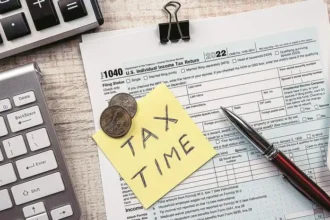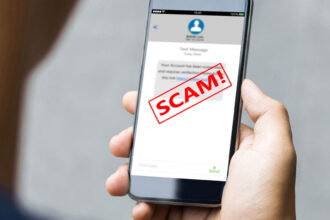A widespread fraudulent operation is currently making the rounds, targeting individuals with automated calls that falsely claim the recipient owes outstanding tax debt. The callers, who impersonate entities like “The Tax Group” or “Department of Tax Debt and Financial Settlement Services,” promise to enroll victims in programs that can reduce or eliminate their supposed tax liabilities.
How the The Tax Group Phone Call Works
Victims report receiving robocalls from various numbers, with different caller names like “Andrew,” “Mike Palmer,” or even bizarre aliases like “Thursday Bill.” The automated message typically instructs the recipient to call back a number starting with 833-312-3XXX, claiming that a representative can assist them in enrolling in a “zero tax program” or other debt relief initiative.
However, these calls are nothing more than a sophisticated scam. The Internal Revenue Service (IRS) and legitimate tax firms would never operate in such a manner, bombarding individuals with robocalls and leaving generic callback numbers.
Moreover, multiple people have reported receiving virtually identical scripted voicemails from different caller IDs and names, confirming that this is a widespread deceptive operation likely using spoofed or rotating caller ID numbers to evade detection.
Tactics Used by Scammers
According to complaints and reviews, the fraudsters behind “The Tax Group” employ a range of deceptive tactics to lure unsuspecting victims:
- Unsolicited Calls Claiming Tax Debt The scam begins with an unsolicited call, often from an automated recording, claiming that the recipient owes back taxes or has outstanding tax debt.
- Evasive Answers and Lack of Transparency When questioned about the company’s details or the process, the scammers provide evasive answers and refuse to offer clear information about their services or credentials.
- Pressure for Upfront Payments Instead of fully explaining their services, the fraudsters immediately pressure victims to make upfront payments or set up recurring monthly payments, without providing any real value or assistance.
- Abrupt Hangups and Dismissals If victims press for more information or raise concerns, the scammers often resort to hanging up or dismissing their inquiries, further demonstrating their lack of legitimacy.
What to Do If You Receive a Call
If you receive a call claiming you owe tax debt and offering to enroll you in a relief program, it is crucial to exercise extreme caution. The IRS and legitimate tax firms do not operate in this manner, and these calls are almost certainly part of the “The Tax Group” scam.
Experts advise against calling back the provided numbers or providing any personal or financial information to the callers. Instead, ignore and block the numbers immediately. If you have any concerns about your tax situation, contact the IRS directly or seek assistance from a reputable tax professional.
By staying vigilant and recognizing the telltale signs of this racket, you can protect yourself from falling victim to these fraudulent tactics and safeguard your financial well-being.














